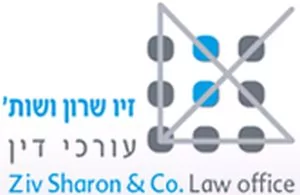In recent years we have witnessed a trend of changes regarding terminations payments and stock options taxation, led by the Israeli Tax Authority ("ITA").
Tax ruling 2873/16 regarding "Taxation in Israel on a cash basis in respect of employment income of an Israeli resident that was produced outside of Israel during the period he was a foreign resident." This tax ruling determined that although the taxpayer derived the termination payment for employment preformed abroad before his return to Israel it should be taxed in Israel on cash basis. This tax ruling's reasoning was that an employee reports his income on a cash basis, and so should be taxable in Israel for his income on the date on which the actual income was received.
Recent tax decision (989/18) continued this trend of unjust cash basis taxation. It determines that in case of a foreign resident who received options, and these options have become exercisable before the individual has became an Israeli resident, but they were exercised after the individual has became an Israeli resident – then the full consideration should be taxed in Israel, and a foreign tax credit on the tax paid in the source country will be granted in Israel depending on whether the individual is a resident without rights or a regular returning resident (as defined in section 14 of the Israeli Tax Ordinance).
This trend of change, changes a long-standing policy without any satisfactory explanation, and in my mind contradicts the OECD's model convention (the "Model Convention") and its Commentary (the "Commentary").
Article 15 (2) of the OECD Model Convention states that only when all three conditions mentioned in it are fulfilled, then the state of residence shall have the exclusive right to tax the income from options:
- The recipient is present in the other state for period/s not exceeding 183 days in any twelve month;
- The employer who pays the options is not a resident of the source state;
- The options are not borne by a permanent establishment which the employer has in the source state.
The OECD Commentary (Hereinafter: "The Commentary") on article 15 discuss a case in which a person received a salary for his work in a state A after he moved to state B. It was determined that in such a case the right of taxation belongs to the source state (state A).
In addition, the Commentary determines two principles regarding stock options' taxation. The first principle, determines that the options will be associated only with conditions related to the period of employment. An example for such a case is employment terms of three consecutive years in a company, while only at the end of this period the employee is entitled to receive the options. These options will be classified only for the required employment period. On the other hand, in the event of a condition stating that after three years it will be possible to receive the options regardless the continuation of the employment, the options may not be attributed with this period.
The second principle, states that the options are granted only in return for service or work done prior to the grant of the options. In other words, any subsequent period is irrelevant and the income from the options must be attributed only to the period in which the services were provided.
In fact, the OECD Model Convention establishes an arrangement in which income from stock options that is generated from work in two different countries, would be attributable to each country according to the part given in exchange for work in each country. To do this, the number of working days in each country should be checked, and then the contracting states should perform the allocation between them.
Therefore, the OECD Model Convention establishes that options will be associated with the employment period. Hence, once the terms of employment required for the grant of the options have been accomplished, and the employee can exercise them – income in respect of the options will be recorded in respect of this period only, regardless the question whether the tax base in the contracting state (in which the options have been exercised) is a cash basis.
In our mind, the latest trend of the ITA contradicts the OECD Model Convention and changes previous tax decisions regarding options. An example for that is tax decision (22/06), which determined that paying a salary for work performed abroad, after the employee returned to Israel, should not be taxed in Israel; as well as tax decision (61/06), which determined taxation of options will be made only in relation to working days in Israel and not in relation to working days abroad. These tax decisions, unlike the new tax decision mentioned above, were consistent with the Model Convention and its Commentary.
We thing that there is absolutely no justification to tax an income generated abroad even if it was received on cash basis after the taxpayer returns to Israel with no rights or as a regular returning resident. The ITA provided in the new tax ruling a foreign tax credit. However, the prevention of double taxation does not justify taxation of an income Israel has to no right to tax.
In addition, the ITA recently published a reportable position (54/2018), which determines tax should be levied on work payments, including options or grants derived in Israel, even if they were accepted after the recipient become a foreign citizen. This position contradicts the new tax decision mentioned above, since it determines that the source country has a right right to tax the salary. While this reportable position is in line with the OECD Commentary, is suggests no consistency when comparing it to the new tax ruling.
In conclusion, it seems that the recent ITA's tax decisions do not match the provisions of the Model Tax Convention of the OECD as well as its Commentary. These tax decisions deviate from previous tax decisions and create uncertainty.
The content of this article is intended to provide a general guide to the subject matter. Specialist advice should be sought about your specific circumstances.

